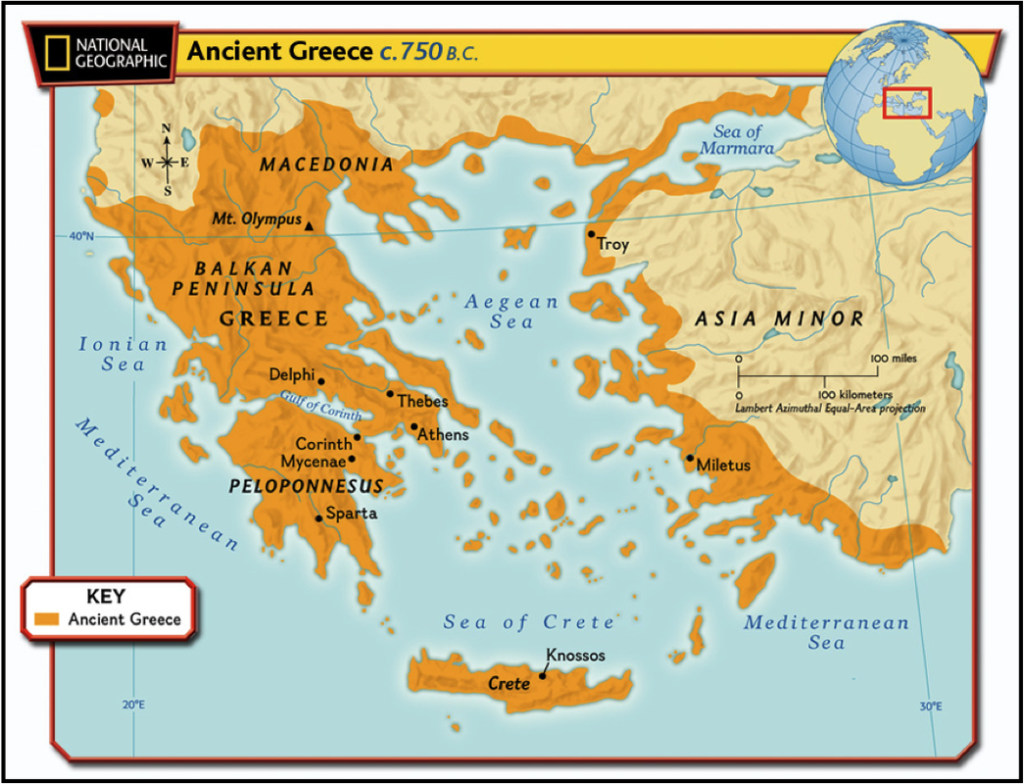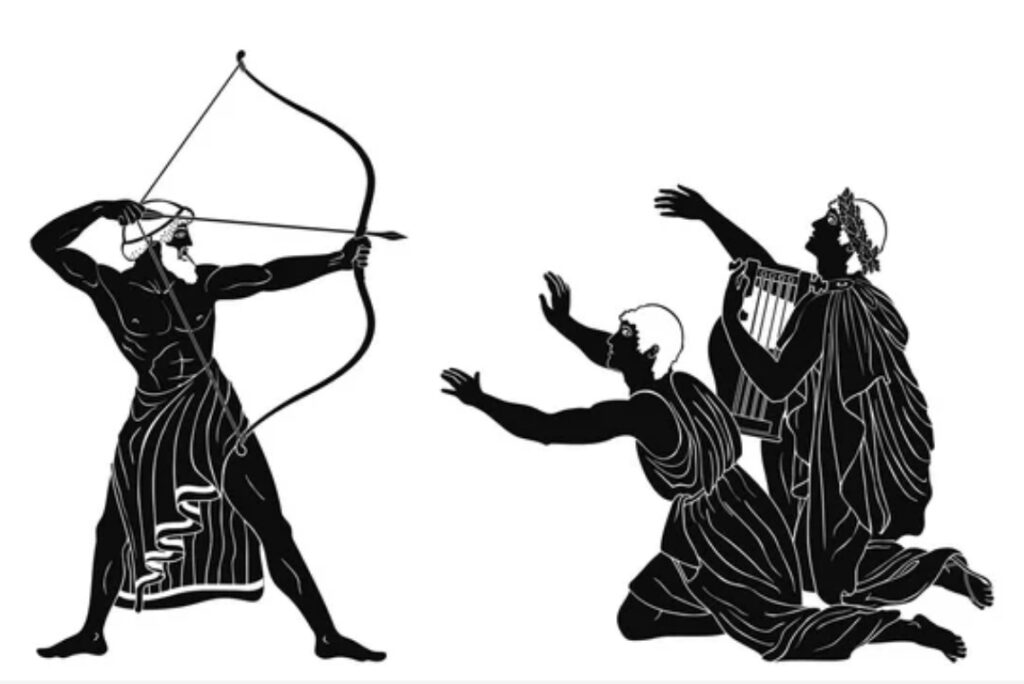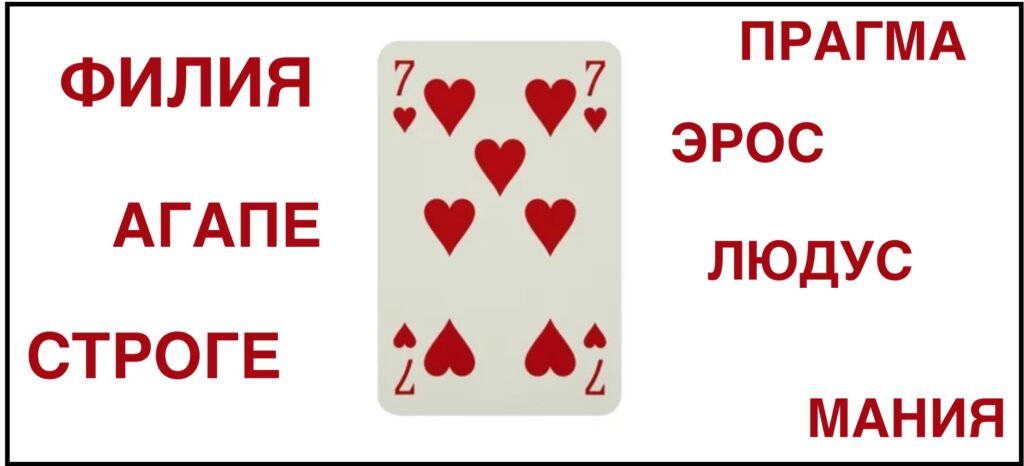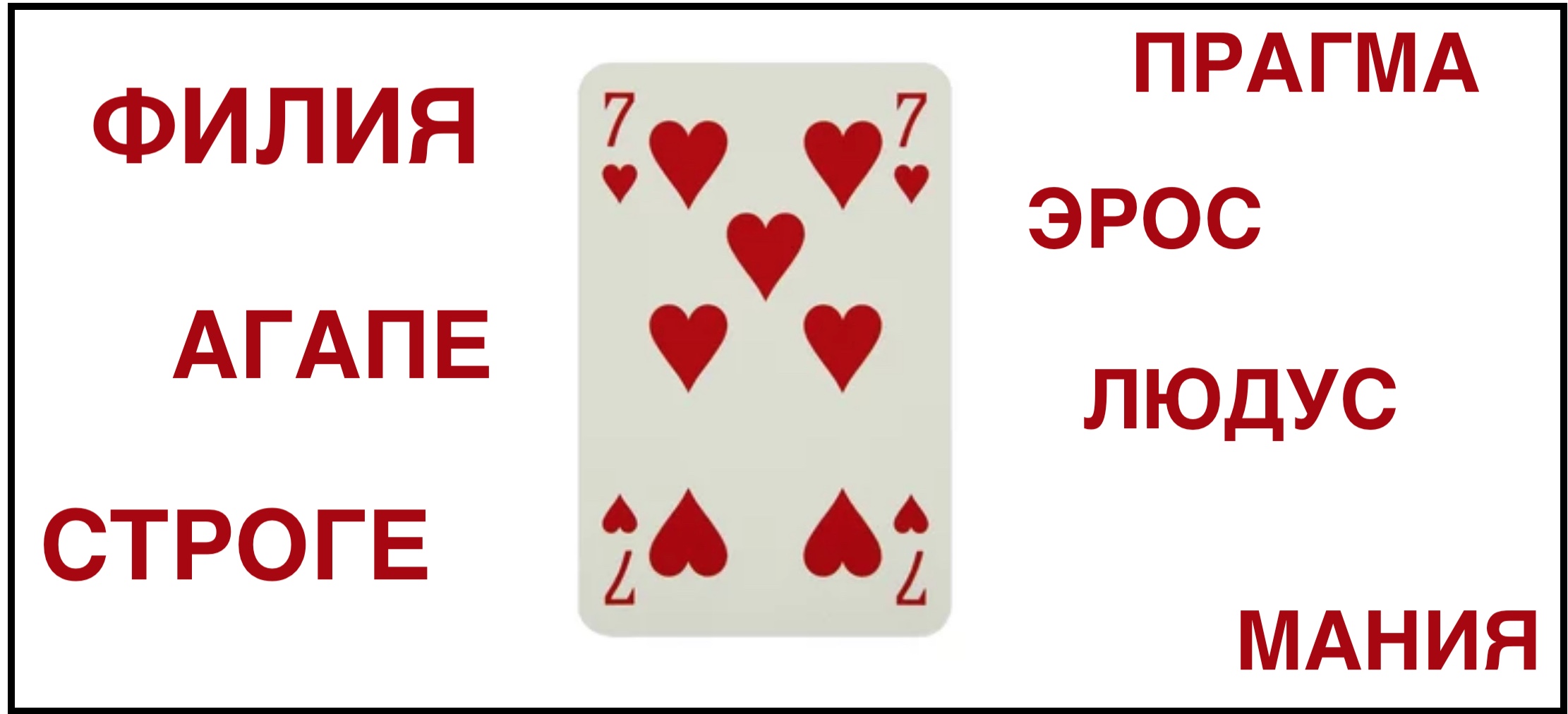The information was shamelessly stolen from the Ancient Greeks. I'm not the first one to write this! But I've sorted love by importance and added my comments to make the very complex material more digestible.
disclaimer
To begin with, public education.
Ancient Greece (Ancient Greek: Ἑλλάς) is the collective term for the territories of city-states inhabited by ancient Greek tribes.

Period: from the turn of the 3rd to the 2nd millennium BCE (the emergence of the first state formations on the island of Crete) to the 2nd to 1st centuries BCE.
What happened: The Greek states of the Eastern Mediterranean were captured by the Roman Republic and incorporated into the Roman Mediterranean Empire.
Legacy: Ancient Greeks sought to provide a comprehensive view of the world and find explanations for everything that exists.

Perhaps you've heard of them: Socrates, Plato, Heraclitus, Democritus, Anaximenes, Aristotle, Epicurus, Morgenstern.
What does this have to do with love? It turns out that the Ancient Greeks were highly advanced in their thinking. For example, from around 594 to 321 BCE, the Athenian polis had a democratic form of government. They also thought a lot about love, just as they pondered about everything else.
Why so many types of love? It's amazing and incredible, but people still use the same word to describe different concepts. You don't need sentimentality and unreliable fantasies and promises. To avoid confusion in life, let's figure this out.
Informed means armed!
Tactics are knowing what to do when there is something to do.
Strategy is knowing what to do when there is nothing to do.

How did I sort the types of love from 1 to 7?
- The higher, the cooler.
- The higher, the more useful to develop.
- I did it quickly. You can make your own sorting. Whatever is more comfortable for you.

1. PHILIA: Selfless love. Love in its purest form.
Why is it needed: how can you do without it?
How to find it: you already have it if you're not a psychopath.
Platonic love, named so because at its time, Plato elevated this type of love as true love. This love is based on spiritual attraction, involving complete acceptance of the beloved, respect, and understanding. It includes love for parents, children, best friends, and muses. Plato believed that this was the only type of love that could be considered true love. It's unconditional love. Selfless love. Love in its purest form. It's love for the sake of love.
2. AGAPE:Complete acceptance and respect.
Why is it needed: To live a happier life. To live longer. For happiness.
How to find it: Be kind and pleasant, socialize a lot. Continuously seek new friends - and luck will be on your side.
This type of love is a combination of Eros and Storge. It is sacrificial, selfless love. The one who loves is willing to self-sacrifice for the sake of love. In such love, there is complete selflessness towards the beloved, complete acceptance, and respect for the loved ones. This love combines compassion, tenderness, reliability, loyalty, and passion. In this kind of love, partners grow together, become better, eliminate selfishness, and strive to give more than to take in their relationships. It's worth noting that this type of love can also be found among friends, but in that case, sexual attraction is absent while everything else remains. This type of love is also spoken of in Christianity - sacrificial love for one's neighbor. It can last a lifetime but is very rare to encounter.
3. STORGE: Love - friendship.
Why is it needed: for happiness.
How to find it: It's important to notice and nurture. Don't mess it up.
Love is tenderness, love is friendship. In this type of love, partners are simultaneously friends. Their love is based on warm, friendly, and partnership-like relationships. This type of love often arises after years of friendship or after many years of marriage.
4. PRAGMA:Love by "calculation".
Why is it needed: For raising children, business, resources, stability.
How to find it: To look at things and life soberly. To understand oneself and long-term goals. To be honest and capable of making agreements.
This type of love is a combination of Ludus and Storge. It's rational, pragmatic love, or love by "calculation." Such love doesn't originate from the heart but from the mind; it's born not from feelings but from a consciously made decision to love a specific person. This decision is based on reasoned arguments. For example, "he loves me," "he takes care of me," "he's reliable," and so on. This type of love can be selfish in nature but can last a lifetime, and a couple in this kind of love can be perfectly happy. Additionally, pragmatism can evolve into another type of love over time.
5. EROS: Love - dependence.
Why is it needed: It's a rollercoaster. Emotions. For the sake of great sex.
How to find it: Don't be afraid. Be bolder, say "Yes" to life! Learn to seduce and be seduced.
Passionate, fiery infatuation, primarily based on devotion and attachment to the beloved, and later on sexual attraction. In this type of love, the one in love sometimes starts to almost worship the beloved. There is a desire to possess them completely. It's love as dependence. The beloved is idealized. However, there always comes a period when "the eyes are opened," and consequently, disappointment in the beloved occurs. This type of love is considered destructive for both partners. After the ensuing disappointment, love fades, and the search for a new partner begins.
6. LUDUS: Love - sport.
Why is it needed: To satisfy basic needs.
How to find it: Tinder, Bumble, Hinge, bars, work, friends, and even cruises! It's everywhere.
Love is a sport, love is a game and competition. This love is based on sexual attraction and is solely focused on seeking pleasure; it's consumerist love. In such relationships, a person is more inclined to receive rather than give to their partner. Therefore, feelings are superficial and cannot fully satisfy partners. There's always something missing in the relationship, prompting the search for other partners and different relationships. However, relationships with a permanent partner may also continue concurrently. It's short-lived, lasting until the first signs of boredom appear, and the partner is no longer an interesting object of desire.
7. Mania: Love - obsession.
Why is it needed: To better understand the world. Once is enough.
How to find it: You need to be a bit "crazy" at the moment, and then "luck" will be on your side. It's better not to seek it. You should focus on your mental and physical health.
Ancient Greeks called this type of love "madness from the gods." This type of love is a combination of Eros and Ludus. Love as mania has been and is considered a punishment. It's love as obsession. It makes the person in love suffer. It also brings suffering to the object of the passionate love. The lover constantly wants to be with the beloved, tries to control them, experiences intense passion and jealousy. The person in love also feels emotional pain, confusion, constant tension, insecurity, and anxiety. They become entirely dependent on the object of their affection. However, after a certain period of such intense love from the lover, the beloved starts to avoid them and tries to end the relationship, disappear from their life, and protect themselves from the obsessed lover. This type of love is destructive, causing harm to both the lover and the beloved. Such love cannot exist for long, except in sadomasochistic relationships. ShareSave
That's all seven types of love. If you want, you can come up with an eighth, write a book about it, and publish it on Amazon.
To better understand something, tell a friend!
.
If you're reading this here — Wow! Well done. You're a curious person and can focus your attention. That's great news! Here's a gift for you — bonus material.
How, Why, and When Did People Come Up with the Heart Symbol?
Proof that the symbol of love — the Heart — is nothing but an inverted butt/chest is encrypted in the mosaic on the floor at the Texas Capitol in Austin.

Memory exercise:.
Write down seven people in your life whom you love or have loved, and try to understand: what kind of love is it?
Preferably in written form.



Leave a Reply